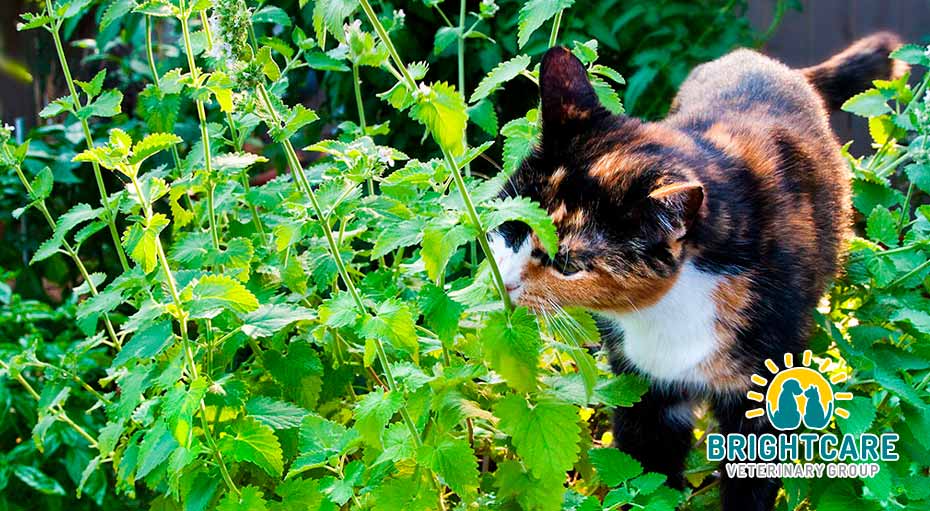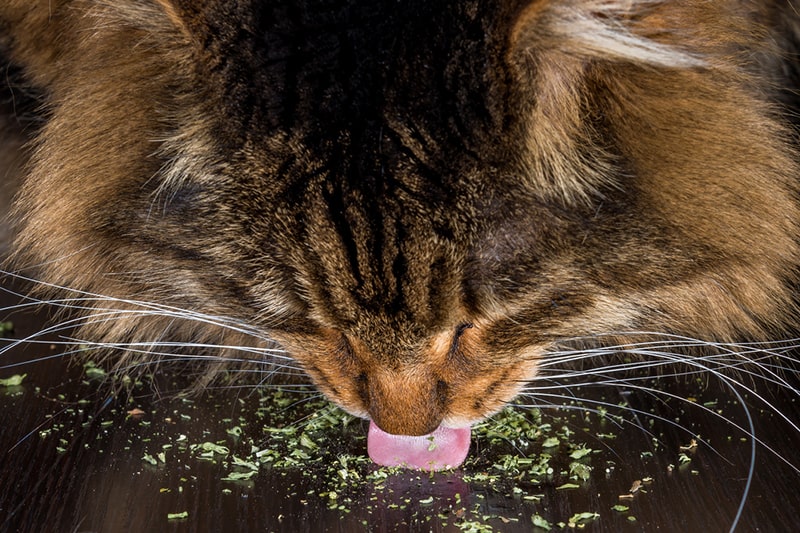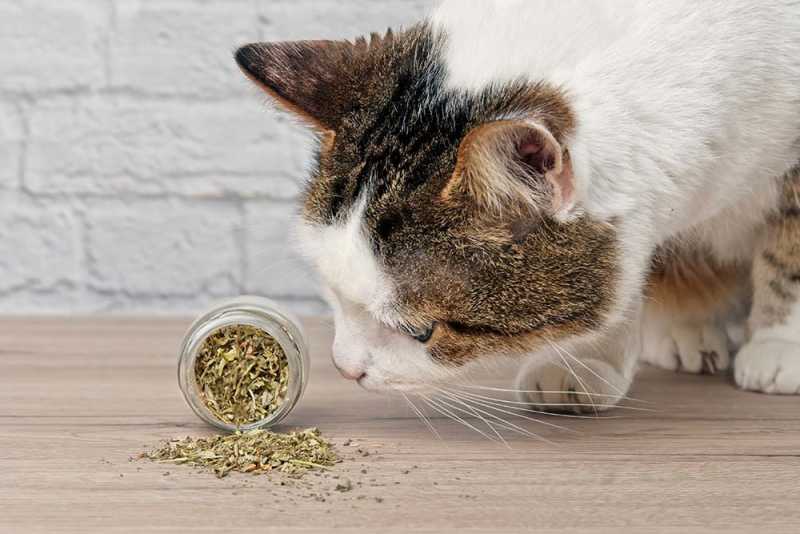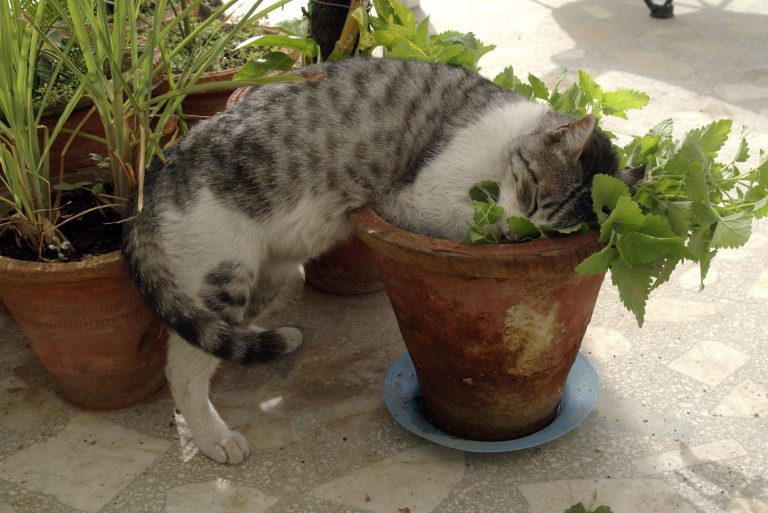Catnip is not bad for cats, and it does not have any harmful side effects. (18 words) Catnip, an herb from the mint family, is often used as a recreational treat for cats due to its appealing scent and effects.
When cats are exposed to catnip, they may display behaviors such as rolling, rubbing, purring, and jumping. This response is due to the compound nepetalactone, which mimics pheromones and stimulates their sensory receptors. While catnip is generally
Additionally, cats should not be given large quantities of catnip as it could lead to an upset stomach or mild digestive issues. It is always wise to monitor your cat’s reactions and consult with a veterinarian if you have any concerns.

Is Catnip Safe For Cats?
Many cat owners are curious about the effects of catnip on their feline friends. Is catnip safe for cats to enjoy, or does it pose any risks to their well-being? In this article, we will explore the short-term and long-term effects of catnip, as well as how it may affect sensitive cats.
Short-term Effects Of Catnip
Catnip, also known as Nepeta cataria, is a plant that belongs to the mint family. When cats come into contact with catnip, whether through sniffing, licking, or ingesting it, they often display a range of behaviors, such as rolling, rubbing, purring, and even increased playfulness. These immediate reactions are generally harmless and can bring joy and entertainment to both cats and their owners.
Long-term Effects Of Catnip
In terms of long-term effects, catnip does not pose any significant risks to cats’ health. It is considered a non-addictive and non-toxic plant. However, it is worth noting that cats may develop a tolerance to catnip over time, leading to decreased responsiveness to its effects. To prevent this, some experts suggest limiting catnip exposure to occasional use and providing variety in enrichment activities for your furry friend.
Catnip And Sensitive Cats
While most cats respond positively to catnip, some felines may not show any reactions at all. Each cat has its own unique sensitivity to catnip, and approximately 30% of cats are not affected by it. If your cat falls into this category, there’s no need to be concerned; catnip is simply not stimulating for them.
It’s important to remember that if your cat does show a sensitivity to catnip, excessive exposure may lead to overstimulation or hyperactivity. Monitoring your cat’s behavior during and after catnip play can help determine their tolerance level. If you notice any signs of distress or discomfort, it’s best to limit their exposure or discontinue use altogether. As with any new experience or substance, observing your cat’s reaction is key.
| Pros | Cons |
|---|---|
|
|
When introducing catnip to your cat, it’s always recommended to start with a small amount and observe their response. If your cat thoroughly enjoys catnip without any adverse effects, it can be a safe and enjoyable addition to their environment. Remember, moderation is key to ensuring your cat’s well-being and prolonged enjoyment of catnip.

Potential Risks And Considerations
Catnip can have potential risks for cats, including excessive ingestion leading to vomiting or diarrhea. It is important for cat owners to consider moderation and consult with a veterinarian for guidance on how to safely incorporate catnip into their feline’s playtime.
Overindulgence And Behavioral Issues
Catnip, while generally safe for cats, can pose some potential risks and considerations. One of the main concerns is overindulgence, which can lead to behavioral issues in cats.
While catnip is known for its stimulating effects, excessive exposure can cause cats to become overly excited or even aggressive. It’s important to monitor your cat’s response to catnip and ensure they don’t consume it excessively.
Some common signs of overindulgence include restlessness, increased vocalization, and hyperactivity. If you notice these behaviors in your cat, it’s best to limit their access to catnaps and provide alternative enrichment activities.
Allergic Reactions To Catnip
Although rare, some cats may have allergic reactions to catnip. These reactions can range from mild symptoms like sneezing and watery eyes to more severe symptoms such as difficulty breathing or vomiting.
If your cat displays any unusual symptoms after exposure to catnip, consult with a veterinarian. They can determine whether your cat has an allergy to catnip and provide appropriate guidance and treatment if necessary.
Alternatives To Catnip
If your cat doesn’t respond well to catnip or you’d like to explore other options for enrichment, there are alternative herbs and toys that can provide similar effects:
- Silver vine: Similar to catnip, silver vine can induce a euphoric response in cats. It’s a safe and natural alternative that can be offered in the form of dried leaves or toys.
- Valerian root: Valerian root has a calming effect on cats and can be used as an alternative to catnip for relaxation. Some cats may find it more appealing than catnip.
- Honeysuckle: Honeysuckle wood or dried honeysuckle can also be enticing to cats. It can stimulate their senses and provide a different form of enrichment.
Remember to introduce these alternatives gradually and observe your cat’s reaction. Not all cats will respond the same way, so it may require some trial and error to find the most suitable option for your furry friend.

Frequently Asked Questions For Is Catnip Bad For Cats?
Is Catnip Bad For Cats?
Catnip is not bad for cats. In fact, it can actually be beneficial. Catnip is a natural herb that stimulates cats and promotes playfulness and exercise. It can provide them with mental stimulation and relieve stress. However, some cats may have a mild reaction to catnip, so monitor your cat’s behavior when introducing it for the first time.
Conclusion
Overall, it’s safe to say that catnip is not bad for cats. In fact, most cats greatly enjoy the effects of catnip and it can provide them with mental and physical stimulation. However, like with any substance, moderation is key.
Offering catnip occasionally and in appropriate amounts ensures that your furry friend can safely indulge in this natural treat without any adverse effects. So go ahead and sprinkle some catnip on their toys or scratching posts, and watch your cat blissfully roll, play, and purr away!
